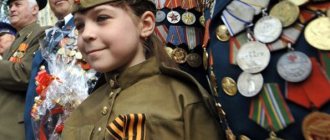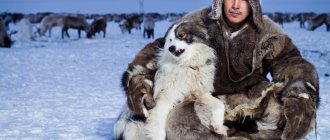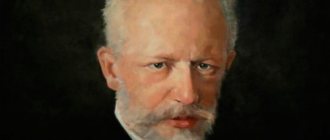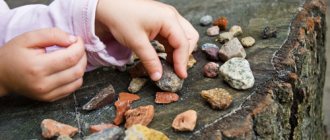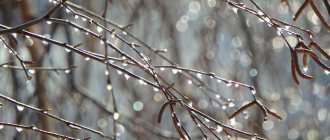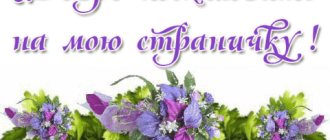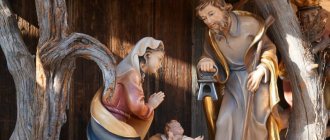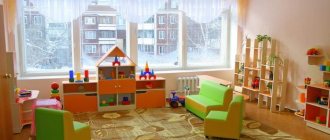How to start a difficult conversation with a child about war?
The ceremonial cry “Victory!”
sounded more than 70 years ago. Much water has passed under the bridge since then, and there are practically no veterans left alive. If parents, educators and teachers do not tell children about the Second World War, the exploits of our great-grandfathers will be forgotten and disappear into thin air, like zilch, as if they never happened. This cannot be allowed to happen. To have a conversation on such an “adult” topic, you need to choose the right moment. It is best to start a conversation on the eve of May 9th. Moreover, having seen how the streets in the city are decorated and the parade is being rehearsed, a preschooler himself can begin to ask questions. Don’t disown this little why this time: take a break from business, sit next to him and tell him about where his great-grandmothers and great-grandfathers were born, how they grew up and how they went to the front to defend their homeland.
It will also be useful to read poems about the war with your child, which tell about the courage, valor and heroism of their ancestors. Here is a large selection aimed at children of different ages - from preschoolers to high school students, in which you can also find touching lines to congratulate veterans:
- poems for May 9 (and the second option - here);
- poems about war for schoolchildren;
- poems about the unknown soldier;
- poems about the siege of Leningrad.
Songs will help you feel even more strongly the scale of your accomplishments and feel pride in your great-grandfathers. Children can not only listen to the following compositions, but also perform them at the festive concert:
- songs for May 9;
- songs of the Great Victory;
- war songs.
Project “The Great Patriotic War through the eyes of children” (for children 6-7 years old)
Project “The Great Patriotic War through the eyes of children”
(for children 6 -7 years old)
Teacher of the Highest Qualification Category Katakova Marina Yurievna.
Don't forget the bloody sunsets,
When the native land was in ruins.
And how the soldiers fell to the ground dead...
Alive, don't forget!
The goal
of the project :
to create interest in the historical past of our people based on existing ideas about the Great Patriotic War. Fostering patriotism, a sense of pride in the heroic past of our people and our loved ones.
Project objectives:
—
Explain what the term “Great Patriotic War” means. To give an idea that it was liberation, carried out in the name of peace, prosperity and well-being of our Motherland.
- Introduce the course of military operations during the Great Patriotic War, the heroic cities, the Victory Banner, the St. George Ribbon and the Order of St. George.
— Expand ideas about the different types of activities of people during the war at the front and in the rear.
— Introduce the Victory Banner, which was hoisted over the Reichstag.
- Give examples of the courage and heroism of people during the Great Patriotic War. Tell about the heroes of the Great Patriotic War, whose names the streets of our city are named.
— To form moral and patriotic qualities: courage, courage, desire to defend one’s homeland.
— Formation of historical memory and continuity of generations based on deepening knowledge about the Great Patriotic War and the participation of one’s relatives in it. —
Development of children's creative abilities, the ability to use acquired knowledge in stories and drawings.
— Develop perception of works of literature, painting, music.
— To instill in children a caring attitude towards family photographs and awards, and a respectful attitude towards the older generation.
— To cultivate a sense of pride in one’s people, the desire to be like those soldiers who defended our Motherland.
— To cultivate the desire in children to grow up as strong, brave and courageous, noble defenders of their Motherland.
— To bring to the understanding that the people preserve the memory of people who gave their lives for their Motherland, that Russia strives to preserve peace on Earth.
— Involve parents to participate in the creation of visual and didactic material on the topic of the Great Patriotic War.
Project duration
: January – May 2022.
Project participants:
teachers, music worker, physical education instructor, local history museum, parents of students, children.
Main forms of project implementation
: excursions, classes, mini-exhibitions, storytelling, physical education, consultations for parents.
Activating the dictionary:
front, rear, partisan detachment, blockade, hero, feat, order, St. George's ribbon, Great Patriotic War, veterans, obelisk, eternal flame, monument, Nazi Germany, victory, parade.
Security:
Material and technical:
bus for an excursion, presentation on the topic: “The Great Patriotic War”, family photographs of the war years, photo album, projector, camera, tape recorder.
Educational and methodological:
Aleshina N.V. “Patriotic education of preschool children” - M.: TsGL, 2005. - 205 p.
Veraksa N.E. “Project activities of preschool children” - M.: MOSAIKA-SINTEZ publishing house, 2008. - 112 p.
Eremeeva V.D. “Boys and girls. Teach in different ways, love in different ways” – educational literature, 2008. – 160 p.
Kondrykinskaya L.A. “For preschoolers about the defenders of the Fatherland,” a methodological manual on patriotic education in preschool educational institutions - M.: TC Sfera, 2006. — 192 s
Nechaeva V.G., Makarova T.A. “Moral education in kindergarten” – M.: Education, 1984. – 272 p.
Alekseev S. Stories about the defense of Leningrad. - M., Bustard. 2003
Alekseev S., Gaidar A., Kassil L.. Baruzdin S. “Stories about the army.” - Dragonfly. 2010
Bakhrevsky V.A. "Heroic ABC" Muscovy. 2009
Deryagina L. Visual aid “This Victory Day.” – St. Petersburg. Politizdat TM. 2010
Jalil M. “Poems.” M., Fiction. 1966
Team of authors. "Pioneers are heroes." M., Baby. 1979
Kondratyev V., Politov Z. “Dead heroes speak.” – M., Politizdat. 1979
Mityaev A. “Stories about the Great Patriotic War.” – M., Bustard – plus. 2010
Persesov Y., Volkov V. “People's War.” – M., White City. 2009
Pecherskaya A. “Children are heroes.” – M., Bustard – plus. 2010
Chuikov V., Ryabov S. “The Great Patriotic War.” – M., Planeta. 1985.
Audio recordings:
“Let us bow to those great years” lyrics. M. Lvov, music. A. Pakhmutova.
“This is what happens in days of war” lyrics. M. Matusovsky, music. A.Petrov
Recording of Yu. Levitan's speech on Soviet radio on June 22, 1941.
Slide – a show of photographs of the war years.
Preparatory stage:
1. Collection and analysis of literature on this topic, conversation with children “What do I know about the Great Patriotic War?”
2. Drawing up a work plan.
3.Development of project content.
Introduction:
Patriotism
- one of the deepest human feelings, consolidated over centuries and millennia. It means devotion and love for one’s Fatherland, for one’s people, pride in their past and present; readiness to defend the Motherland.
In our difficult times, when there are frequent attempts to “rewrite” or distort the recent history of the country, it is difficult to overestimate the importance of patriotic education of children and strengthening ties between generations. This work must be carried out very delicately, since any pressure can cause resistance, the exact opposite effect.
With children of senior preschool age, we decided to implement a project dedicated to the memorable date - the 73rd anniversary of the Great Victory. I wanted to “ignite” in the hearts of children a desire to learn about the events of the Great Patriotic War from books, films, stories from adults and family members.
Relevance of the project:
Patriotic feeling does not arise on its own. This is the result of a long, purposeful educational influence on a person, starting from childhood. In this regard, the problem of moral and patriotic education of preschool children becomes one of the most pressing. Each generation has its own war: the Great Patriotic War, Afghanistan, Nagorno-Karabakh, Chechnya... All these wars resonate with pain in our hearts. But the Great Patriotic War is the most important page in the history of our country, which showed the whole world the fortitude and inflexibility of the Soviet people. Modern children and teenagers learn about the events of the Great Patriotic War mainly from history textbooks, since the younger generation reads little and is not very willing, and also rarely (only on the eve of Victory Day) has the opportunity to watch real movies on military topics. War veterans, living witnesses and participants in those events, are passing away. And the survivors, due to age and illness, unfortunately, see children less and less often.
The modern generation is often reproached for not knowing the past of our country, including the events of the Great Patriotic War. For many of today's children and teenagers, this war is indeed a distant history... During a conversation with the children of the preparatory group, it turned out that they have a negligible idea about the Great Patriotic War, or do not have it at all. But the worst thing is that most of them did not know what mark the war left on their families, which relatives fought, died or were wounded, and what awards they had.
Thus, there is a threat of loss of historical memory about the most important and tragic event of our Motherland and the whole world - the Great Patriotic War.
Historical memory is not just knowledge of the specific reality of the past, but the awareness that each of us, as a particle of history, is inseparable from what happened before our birth. In my opinion, memory is one of the important sources of patriotic and moral education of the individual. Not only war veterans, but also those who were children and teenagers during the war, i.e., can help us, educators, preserve this source. peers of our students, and now their grandparents. Children also know almost nothing about the life of this generation. But it was they, the children of the war, who became its main victim, since it deprived them not only of their childhood and all the joys that accompany it, but also took it away from many of their closest people. Wartime children became adults early, especially boys. They had to replace those who had gone to the front at the factory machine, at the plow on the arable land. It was for their freedom, their future, that fathers and brothers went to their deaths. It was they, the children of war, who had to restore their hometowns and revive villages, explore virgin lands and space.
What helped them survive against all odds, not break, not become bitter, and become worthy people? “Children and war - there is no more terrible convergence of opposite things in the world,” wrote A. Tvardovsky. Grief and suffering, pain and loss helped to instill in that generation the desire for a decent life, love for it, self-sacrifice, compassion, kindness, responsiveness, hard work - all those qualities that are so lacking in today's generation. Is it really only through compassion that the best moral qualities can be instilled in a person? Of course not. This can be done by the example of older generations, by respect for the past of one’s people.
Project implementation stages:
Great Victory... Everything that stands behind these words is understandable to people of the older generation. How can we explain to preschoolers what the Great Patriotic War is, how can we convey to their understanding the greatness and dedication of our people who won the Victory?
Of course, we turned to the material that preserves memories of the past. And these are: songs, books, paintings, museums, meetings, communication with eyewitnesses of events.
Conducting thematic classes and conversations with preschool children:
“The Great Patriotic War”, “What is heroism”, “Feat in war”, “Children during the war”, “We remember heroes”, “The history of the St. George’s ribbon”, “G. K. Zhukov - a great commander,” “Defense of the Brest Fortress in 1941.”
The group organized a book corner
"Children about the war." The guys ask to read them again and again, trying to imagine those distant events. Serious children's faces, attentive glances... With bated breath, the children listen to the teacher's story about the exploits of young heroes who died during the war: Leni Golikov, Zina Portnova, Volodya Dubinin, Tolya Shumov and many others.
Collective reading and discussion of poems and stories
on military topics.
Mini-exhibition
reproductions of paintings, photographs of the war years, and documentary chronicles help children imagine the heroism and courage of our soldiers during battles, understand the danger of life at the front, and feel the moment of joy and jubilation when the Victory flag soared over the Reichstag.
Preschoolers visiting a local history museum
, where an entire hall is dedicated to the military glory of our people, which enhances the visual and emotional perception of the events of the Great Patriotic War.
Create presentations on topics:
“How it was”, “Brest Fortress”, “Siege of Leningrad”, “Hero Cities”, “Let us bow to those great years”, “
Young
war heroes”, “Victory Banner”, “Symbols of Victory - orders, medals and banners” .
View
front-line photographs and letters, documentaries and feature films about the Great Patriotic War, a speech by Yu. Levitan about the attack of Nazi Germany.
Exhibition of children's drawings on the topic:
“To remember...” Everyone knows that one of the favorite activities of children is drawing. A child’s drawing contains everything: impressions, emotions, wishes. The drawings are filled with childish sincerity, spontaneity and seriousness unusual for this age.
"War Relics"
- a mini-museum created in a group with the help of parents. In the eyes of the children there is surprise and delight: here they are - war photographs, letters-triangles, medals and orders of great-grandfathers and great-grandmothers.
Musical and literary salon “Songs with which we won”:
"Holy War" lyrics. V. Lebedeva - Kumacha, “Victory Day” by D. Tukhmanov, V. Alkin “Farewell of the Slavic Woman”, “Three Tankmen”, “Little Blue Modest Handkerchief”, K. Simonov “Wait for Me”, “Eternal Flame” music. Filimonova, “Heirs of Victory” music. Zaritskaya, lyrics. Shumilina, “Cranes” music. Y. Frenkel, “Katyusha” Music. M. Blanter, lyrics. M. Isakovsky, “Requiem” by R. Rozhdestvensky.
Organization and holding of military-sports and patriotic events
— military sports game “Zarnichka”,
Physical education:
“Competitions of the strongest”, “To sports records your glorious names.” (With the participation of boys from preparatory groups).
Organization of a children's drawing competition on asphalt on the territory of the preschool educational institution "
We remember - we are proud! "; “Peace to the world!”
Organization of a photo exhibition:
“Vyazma during the Great Patriotic War”, “Women during the Great Patriotic War”, “No one is forgotten and something is not forgotten”, “Glory to the heroes-countrymen!”.
Organization of ceremonial meetings with veterans:
“Let us not forget their great feat! »with the invitation of veterans of the front and rear, a conversation with grandparents and other relatives about the war years.
Excursions to places of military glory.
Our city keeps the memory of that difficult time.
An excursion to the monument to Lieutenant General Efremov, to the obelisk of Marina Raskova, our fellow countrywoman, to the eternal flame, laying flowers, and the Walk of Glory helps our children understand and realize this. Excursion
to the Eternal Flame, laying flowers at the Memorial of Glory to the soldiers who died for their Motherland during the Great Patriotic War.
Flowering gardens in dazzling white outfits. There is a light lilac scent in the air. We kneel before the memory of the fallen, and scarlet tulips are laid on granite slabs. Children, paying tribute to the memory of all those who died in that war, so distant for them, say: “Let us bow to those great years...”.
Reading fiction:
S. Alekseev “First Column”, “First Night Ram”; E. Blaginina “Overcoat”; L. Kassil “Monument to the Soviet soldier”; M. Plyatskovsky “May of forty-five”; A. Mityaev “Bag of Oatmeal”, “Letter from the Front”, A. Tvardovsky “Tankman’s Story”, L. Kassil “Your Defenders”; S. Baruzdin “Stories about War”, S. Mikhalkov “Victory Day”.
Organization of a photo exhibition:
“Vyazma during the Great Patriotic War”, “Women during the Great Patriotic War”, “No one is forgotten and something is not forgotten”, “Glory to the heroes-countrymen!”.
Vernissage of children's creativity:
“Fireworks over the city in honor of Victory Day”, “We vote for peace! ", dedicated to the 73rd anniversary of the Victory.
Making greeting cards:
"Thank you for the World!" WWII veterans, war children, home front workers.
The story of my family.
For normal development, boys need the vague image of a real man to gradually become a reality, finding its embodiment in specific people. Moreover, it is very important that the heroes be familiar, easily recognizable, and close. Then it is easier for the boys to relate them to themselves, it is easier to look up to them.
That is why we considered it necessary to highlight for children the feat of our people during the Great Patriotic War through the prism of the history of our family. (Compiling individual stories of children together with their parents about the history of their family during the Second World War).
Consultation for parents
: “How to tell a child about the war?”
In child development centers and in corners for parents, organize thematic exhibitions: “
Nobody is forgotten and something is not forgotten”,
“
Glory to the heroes-compatriots!”,
“
Chronicle of the war years”,
“
May 9 Victory Day”.
Design of thematic albums:
“Hero Cities”, “WWII Awards”, “Weapons and Equipment of the Great Patriotic War”, “Siege of Leningrad and the Road of Life”, “Chronicle of the War Years”.
Creation of the “Book of Memory”
with stories from children, family photographs, photographic materials on the topic: “Heroes of Vyazmich”, with stories about why we remember them. (Major M. M. Raskova, M. G Efremov).
Looking at the paintings:
A.V. Kochevin “Before Berlin”, A.V. Kochevin “Fight”, illustrations “Chronicle of the War Years”.
Didactic game
for older ages “The Great Patriotic War. Victory!". The game consists of cut pictures. It is necessary to collect pictures on the topics: “Things of war”, “Weapons of victory”.
Game “Find by description”, “Guess the riddle, find the answer”, “Trace the path”
Game "Military Cap". The guys are standing in a circle. They choose a driver. The presenter gives one of the players a military headdress (cap, cap, beret), and the children begin to pass it to each other to the music. As soon as the music stops, the one of the children who happened to have a cap at that moment puts it on himself and marches around in a circle like a soldier, accompanied by the friendly clapping of the players’ palms.
Learning _
proverbs about the Motherland
.
Poetry competition,
dedicated to the 73rd anniversary of the Great Victory.
Presentation of the project
- integrated lesson “The Great Patriotic War through the eyes of children.”
Event Planning
| № | classes | month | number of classes |
| 1 | “June 22, at exactly 4 o’clock...” Target : Introduction to the Great Patriotic War as the greatest historical event in the history of our Motherland. Reading the "Heroic ABC". | January | 2 lessons |
| 2 | "Brest Fortress" Target : Tell the children about the feat of the defenders of the Brest Fortress. View photographs: “Memorial – Brest Fortress.” Reading the "Heroic ABC". | February | 1 Lesson 2 |
| 3 | "Songs of the War Years" Target: Listening to songs from the war. Conversation. | February | 1 lesson |
| 4 | "Khatyn" Target: Tell children about the tragedy of the Belarusian village. Reading the "Heroic ABC". Virtual tour of the Khatyn memorial (Internet sources). | March | 2 lessons |
| 5 | Series of lessons “Pioneers - Heroes” Target : Tell about the feat of the pioneers - heroes. Reading books from the series of the same name. Listening to songs from the war years. | March | 3 lessons |
| 6 | "Leningrad. Blockade. Feat" Target : Tell the children about the feat of the Leningraders. Explain the meaning of the word “blockade”. Reading "The Diary of Tanya Savicheva." Viewing documentary chronicles of besieged Leningrad. | April | 3 lessons |
| 7 | “Vyazma is a hero city” Target: Tell children about the heroic defense of our city. Reading books about Vyazma. Listening to songs from the war years. | May | 2 lessons |
| 8 | Excursion to the local history museum. Hall of Military Glory. Target : Meeting and conversation between children and a WWII veteran.... Consideration of “finds” from the Great Patriotic War. | April | 1 lesson |
| 9 | Poetry competition dedicated to the 65th anniversary of the Victory Target: To instill in children a sense of pride for their country. Arouse the desire to express your feelings in poems about the Second World War. | April | 1 lesson |
| 10 | "Hero City Stalingrad" Target: Tell children about the heroic defense of Stalingrad. A story about a participant in the Battle of Stalingrad, P.M. Kuzovnikov. Examination of awards, military chronicles. Listening to songs from the war years. | April | 2 lessons |
| 11 | Drawing competition Target: Invite parents and children to participate in the “To Remember...” competition. | April | 1 lesson |
| 12 | Excursion to Memorial Park Target: Continue to cultivate a sense of respect and gratitude for the older generations who defended the independence of our Motherland. Laying flowers. | May | 1 lesson |
| 13 | Presentation of the project “The Great Patriotic War through the eyes of children” | May |
Expected results:
As a result of systematic, purposeful educational work, children have formed elements of citizenship and patriotism. You cannot be a patriot without feeling a personal connection with your Motherland, without knowing how our ancestors, our fathers and grandfathers loved, cherished and defended it. Knowledge about the Great Patriotic War has been expanded and systematized.
The skill of writing a story about the history of your family during the Second World War has been consolidated.
The algorithm for creating a project has been mastered: setting a goal, searching for various means of achieving the goal, analyzing the results obtained.
The skills of productive activities in the production of postcards, compilation and design of the “Book of Memory” were consolidated.
A respectful attitude towards war participants and home front workers has been formed; careful handling of family photographs and relics (medals, certificates, etc.).
We should also not forget that war is one of the most important historical experiences and practices in the formation, reproduction, education and perception of a real man. The image of the warrior remains one of the key symbols of masculinity. This is especially important for boys as they grow up.
Project activity product
“Book of Memory” with children’s stories about great-grandfathers and great-grandmothers during the Great Patriotic War, exhibition of drawings “The World through the Eyes of Children.” Project presentation.
Result:
Those who were born after the war can no longer understand much and cannot survive what the war generation experienced. You can only listen to the stories of those who survived, and try to understand, try to feel what they experienced, and keep it in memory... And pay tribute to eternal respect and eternal gratitude.
Patriotism and other moral qualities can hardly be cultivated even by many of the most successful projects and educational activities. Patriotic education of future generations will be successful when it becomes one of the priorities of state policy and family education. But we, educators, can do a lot to develop children’s interest in what it is impossible to raise a patriot without - interest in the past of their Motherland, their family, their loved ones, their participation in events of such a scale as the Great Patriotic War. This kind of work needs to be done constantly, and not just on anniversaries. We believe that our project “The Great Patriotic War through the eyes of children” has become an important step towards this goal.
We are sure that from now on the children know at what cost military awards were received, what respect they, children, should show to older people, war and labor veterans.
Project presentation
“The Great Patriotic War through the eyes of children”
The hall is decorated with posters dedicated to the 73rd anniversary of the Great Victory, and there is an exhibition of books and paintings on military themes.
Educator:
Let's say hello to the guests.
Children:
Hello.
Educator:
(calls the guys over to him) Guys, look how many books there are at our exhibition.
- Are they familiar to you? (children's answers)
-What are they talking about? (children's answers)
- Right. Sit comfortably on the chairs. It is about it, about the Great Patriotic War, that we will talk today.
The recording of the song “Let us bow to those great years” (chorus) lyrics is turned on. M. Lvov, music. A. Pakhmutova.
Educator:
What is this song about? Which years should we worship?
(children's answers)
- When was this war? (children's answers)
— What happened on June 22, 1941? (children's answers)
- What do you mean by deception? (children's answers)
Educator
: Our country is huge, but people quickly learned about the start of the war. How? How? (presumptive answers from children about Yu. Levitan)
Yes, guys, Yuri Borisovich Levitan was a famous announcer who was the first to notify the whole country about the beginning of the war and for 4 years broadcast important messages on the radio.
- Let's hear how it was?!
The recording of Yu. Levitan's voice is turned on.
Yes, fascist Germany treacherously attacked our Motherland and the whole country, everyone, young and old, stood up to defend the Fatherland. Along with adults, children also fought against the German invaders.
Do you know child heroes? (children's answers)
Who wants to talk about any of them?
Children come to the board and talk about young heroes.
(magnetic board with stars on it, on the back of which are written the names of child heroes)
Educator
: And today, how do we learn about the events of those years? (children's answers)
Educator:
That's right, from books. Let's approach our exhibition and look at the illustrations.
- Look what is shown in this picture?
- And on this one?
- And here, look! (children's answers)
Educator:
We learn about war from literature. Stories, stories, and poems were written about the events of those years. Sit down comfortably, and I will read you one of the poems.
Musa Jalil "Wolves"
Educator:
In this poem we saw how cruel and merciless the fascists are. After all, even the wolves did not touch the wounded soldier, and the German invaders took away the most precious thing from a defenseless soldier - life.
The recording of the song “This happens in the days of war” (excerpt) lyrics is turned on. M. Matusovsky, music. A.Petrov
- But you also know poems about war. Let's honor them.
Children read poetry.
Educator
: For the courage and bravery shown in the fight against the Nazis, the title of hero was awarded not only to people, but also to cities.
— How many cities were awarded this honorary title? (children's answers)
- Do you know them? Children call hero cities.
— Guys, how many of you remember what Leningrad and its inhabitants experienced during these harsh years?
Educator:
I've seen hand-to-hand combat many times,
Not in reality, but only in a dream. Whoever says that war is not scary knows nothing about war.
We know what is now on the scales, and what is happening now. The hour of courage has struck on our watch, And courage will not leave us.
The recording of battle sounds is turned on.
Scene “On the battlefield”
Educator:
Many songs have been written about the Great Patriotic War. What songs of the war years are you familiar with? (children's answers)
- Let's sing one of them?!
Who said you have to quit?
A war song?
After the battle the heart asks
Double the music!
Children sing the song “It’s time to hit the road” lyrics. S. Fogelson, music. V. Solovyov-Sedoy
Educator:
An important turning point in the war was the Battle of Stalingrad. I want to tell you about one of the participants in this battle.
“This is my grandfather – Kuzovnikov Pavel Matveevich. He went to the front in 1942 and immediately fell under Stalingrad. He said that it was a fierce battle, which was won by courageous Soviet soldiers. At Stalingrad, my grandfather was seriously wounded, was treated in a hospital, and then went to the front again. Subsequently, he received 4 more wounds, 2 of which were serious. My grandfather, Pavel Matveevich, returned from the war alive, lived for many years and celebrated Victory Day more than once. Unfortunately, he is no longer alive, but I am proud of my grandfather, and his memory will forever remain in my heart” (after the story he pins the photo on a magnetic board)
I know that today some of you brought photographs of your loved ones and would also like to talk about them.
Children go out
, talk about their relatives and attach their photographs to the board.
Educator
: Our country suffered heavy losses, but the Soviet Army survived and won.
- Why did our Army win, because in the first years of the war the German army was stronger?
- When did the war end? (children's answers)
Educator:
Let us, in honor of those to whom we owe our lives, light a “candle of memory” and honor their feat with a minute of silence (lights a candle). Schumann's music "Dreams" sounds
Sometimes it seems to me that the soldiers
Those who did not come from the bloody fields,
They once did not die in our land,
And they turned into white cranes.
View a slideshow of photographs from the war years.
Educator:
May 9 became the Day of Remembrance of Soldiers, the Day of Victory of our people over a terrible and cruel enemy - Nazi Germany.
If on this day you meet veterans on the streets of the city, do not forget to congratulate them on the holiday and thank them for the Victory! And so that you always remember and are proud of their feat, I want to give you “St. George Ribbons” (the teacher attaches a “St. George Ribbon” to each child’s chest).
The recording of the song “Let us bow to those great years” is turned on. M. Lvov, music. A. Pakhmutova .
How to explain to children why the war started?
In childhood, everything seems so simple: cross your little fingers, say the magic words “make up, make up and don’t fight anymore” - and again you’re friends forever. But in the adult world everything is much more complicated and confusing. This is how you need to explain to a child, without inventing anything: the rulers of different countries envy their neighbors who live better and start wars to seize other people’s wealth and natural resources. As for the Second World War, we can say that the Fuhrer of Germany Adolf Hitler believed that his nation was the best, and in order to prove this to the whole world, he decided to establish a fascist regime and turn other nations into his slaves.
What should you tell a schoolchild about the war?
Know about the events of 1941-1945. every educated person should, therefore the study of the Great Patriotic War is included in the school curriculum for grades 9-11. To prevent the guys from getting tired, we suggest absorbing information in doses. Short but succinct articles will help with this:
- Causes, results and key events of the Second World War.
- The role of the partisan movement.
- The essence of fascism and Nazism.
- How the Soviet Union prepared for war.
- Losses in World War II.
- USSR in the post-war years.
And so as not to be boring, the educational process can and should be diluted with proverbs. They reflect centuries-old folk wisdom, the feelings of people, their pain of loss and the joy of victory. So these sayings will help to understand how a person survived those terrible events, and at the same time enrich speech:
- Proverbs and sayings about war.
- Proverbs and sayings about peace.
- Proverbs and sayings about patriotism.
- Proverbs and sayings about defenders of the Fatherland.
- “Peace builds, but war destroys” is the meaning of the proverb.
After studying the topic, it is time to show how well you have mastered it. Therefore, all high school students will benefit from a selection of essays. These are just examples, but they can be used as a basis when writing your text:
- essays on the theme of Victory Day;
- essays about war;
- essays about the feat;
- essay on heroism;
- essay about child heroes.
Why tell children about war?
One of the important stages in the development of a child’s personality is his comprehensive development and knowledge of the history of his country is simply mandatory. Preschool children are very inquisitive. But not all topics may be of interest to them, but only those that have practical significance. Of course, a teacher or teacher must be able to present the material correctly in order to interest even the most unmotivated children. Boys and girls perceive stories about the war somewhat differently: boys use the example of heroes to form a model of masculinity and courage, girls take care of loved ones and victims. Stories about the exploits and valor of the Soviet people contribute to the formation in children of a sense of pride in their people, country, the development of patriotism, love for the Motherland, and the desire to be like the heroes who defended our country.
Conducting thematic conversations and events in kindergartens is an important component of the patriotic education of preschoolers, the formation of love for the Fatherland, which helps to feel the roots of one’s family. That is why, the sooner a child begins to feel his involvement in the Motherland, in his native land, the sooner he will develop a sense of responsibility for its future, the future of his country, his family.
Parents should work closely with kindergarten teachers so that, with an integrated approach, they not only expand the child’s knowledge about the war of 1941-1945, but also form in him a correct and clear civic position, cultivate a respectful attitude towards the elderly and veterans, monuments and heroes of the Second World War.
Interesting books and audio stories about the war
Older children who study at school are already assigned to read thematic literature. Very often they are scared away by the “many letters”, but the eve of May 9 is the time to catch up. You will be surprised, but works of fiction based on the events of the Second World War are really interesting. They have epic battles, dynamic plots, and keep you in suspense even worse than action films. Alternatively, read the short retellings - after that it will become so interesting that you will want to take up the original:
- Vasily Terkin - a poem about the life of a soldier at the front.
- And the dawns here are quiet... - a story about five selfless girls who are anti-aircraft gunners.
- The story is about a real person - about the feat of a Soviet pilot shot down by a fascist plane. The plot is based on real events.
- Three girls - about the life of one communal apartment during the siege of Leningrad.
An alternative option is audiobooks for children about the Great Patriotic War. The big advantage of such works is that you can listen to them anywhere while doing other things. Here are a few books with interesting voice-overs:
- Son of the Regiment is a story showing the war through the eyes of a child.
- The Doll is a heartfelt story about cruelty and indifference in the post-war world.
- The destiny of man is about a man of amazing fortitude. He survived the horrors of the war, went through a concentration camp, but retained a good heart and, after returning from the front, “adopted” a street boy.
- A golden cloud spent the night - about the difficult life of orphans during the war years.
Pioneer heroes
Preschool children will be interested in learning about the heroic children who also fought the enemy during the war. They, without fear of reprisals from the Nazis, helped the Soviet army and the country win. Before the war, these were ordinary boys and girls; by 1941, many were barely 10 years old. During times of difficult trials, they accomplished a real feat, defending their people and harboring hatred for the fascists. Many of them died while carrying out their mission, helping the partisans, the army, and the Motherland.
Children's creativity for Victory Day
When telling children about May 9, you need to give them a short break to digest the information. At this time, holiday ideas for creativity will come in handy. The kids will show off their talents, soak up the holiday atmosphere, and even be able to prepare gifts for veterans.
Here are how many interesting things you can make with your own hands from scrap materials:
- crafts for May 9;
- paper sword;
- cool gun;
- paper shuriken;
- Military aircraft.
Also, any child can create a beautiful gift picture. How, you ask? It’s very simple: coloring pages can help. To turn into an artist, you only need colored pencils or markers. And for kids, this exciting pastime will also help develop fine motor skills.
Here are the outline pictures we have prepared for you:
- coloring pages for Victory Day;
- tank coloring pages;
- airplane coloring pages;
- Ship coloring pages.
Tips for parents
There is practically not a single family in Russia that has not been affected by the war. Some had grandfathers, great-grandfathers, grandmothers and great-grandmothers who fought, others worked in the rear to provide the Soviet army with everything it needed at the front. In those distant and difficult years, there was practically not a single person indifferent to the fate of our Motherland. You need to talk to a preschooler about the war in simple, understandable and accessible language. It will be difficult for a small child to reconsider a large amount of information, so you should not try to tell him everything about the war at once. For example, it is better to talk about military equipment and weapons after visiting the museum, when the child can see everything with his own eyes. You can talk to your child about the heroism and valor of soldiers at the monument or in the military glory park. You can talk about the heroic deeds of the soldiers and gratitude for the peaceful sky during creative drawing classes and when preparing crafts for Victory Day.
If there were or are still alive front-line soldiers in your family, or if one of your relatives worked in the rear during the war, be sure to tell your child about them. If possible, let the child himself communicate with eyewitnesses of that time, learn about the difficult life, the terrible lot that befell their cries. Show your child the awards that your relative was awarded and share with him your memories of that time. Such conversations will remain in the child’s memory for a long time.
Reading relevant literature will also have a positive effect on the formation of a correct and clear civic position of a preschooler. Parents can take their child to the library and together choose books about exploits, battles, blockades, and generals of the Great Patriotic War, focusing on the child’s age. On a day off, you can visit a museum with your whole family or go on a trip to some hero city and see local military attractions. When laying flowers at monuments of military glory, tell your child the purpose for which this is being done, and honor the memory of the fallen with a minute of silence. The kid should know that they all defended the Motherland (and him too) from fascism.
Riddles and quizzes for the Ninth of May
No matter how difficult the prehistory of the holiday was, our great-grandfathers did not gnaw out Victory with their teeth so that their descendants would be sad. For the joy and smiles of children, this is a selection of exciting games that will also help test their knowledge:
- military riddles;
- riddles about the plane;
- military quiz.
We hope our selection will help children get into the holiday atmosphere, broaden their horizons and become true patriots. Develop your creative abilities, be proud of your history, get excellent grades in Russian and literature. Happy Victory Day!
Small and touching poems about the Second World War for children
Songs from the front, Military awards, Red tulips, Meetings of veterans And fireworks in half the sky, Huge as Victory.
V. Shefner
Concentrating regiments against us, the enemy attacked a peaceful country. On a white night, on the whitest night, I started this black war! Whether he wants it or not, he will get what he wants from the war: Soon even the days, not just the nights, will become black for him!
Salute and glory to the anniversary of an eternally memorable day! Salute to Victory, that in Berlin the power of fire was trampled by fire! Salute to Her great and small Creators who walked the same path, Her soldiers and generals, Heroes fallen and alive, Salute!
I tried to write the letter without any blots: “Please give Grandfather a gift...”
Been on the road for a long time Musical greetings.
But then my grandfather came up and hugged me - I came to him on a holiday
May 9 His favorite song is Frontline.
The dead - To be constantly at their post, They live in the names of streets and in epics. Their exploits and holy beauty will be depicted by artists in paintings. To the living - to honor the Heroes, not to forget, To keep their names in immortal lists, To remind everyone of their courage And to lay flowers at the foot of the obelisks!
V. Shefner, 1941
Concentrating regiments against us, the enemy attacked a peaceful country. On a white night, on the whitest night, I started this black war!
Whether he wants it or not, he will get what he wants from the war: Soon even the days, not just the nights, will become black for him!
A veteran is a seasoned fighter, he has seen a lot in his life. He defended his country with courage in battle!
On Victory Day, medals sparkled on his chest. There are medals on his chest! My sister and I counted them.
V. Turov
Grandma put on the medal and now she’s so beautiful! She celebrates Victory Day, remembering the great war. Grandma's face is sad. There is a soldier's triangle on the table. Grandfather’s letter from the front is very painful for her to read even now. We look at grandfather’s portrait and shake hands with my brother: “Well, what kind of grandfather is this?” He's still just a boy!
V. Berestov
No, the word “peace” will hardly remain, When people will not know war. After all, what was previously called the world, Everyone will simply call life.
And only children, experts on the past, Having fun playing war, Having run around, will remember this word, With which they died in the old days.
V. Shiltsyn
Military roads sung in songs, washed by rains, covered with snow, the Earth that is broken by feet, hooves, Passed here and long forgotten. Knots are woven, beaten and passed through, Like the swollen veins of a wounded Motherland. All forces are thrown into the great battle. The roads are full, but the grass is not cut.
Many years ago there was a great Victory Day. Grandfathers remember Victory Day, each of his grandchildren knows. The bright holiday Victory Day is celebrated by the whole country. Our grandparents put on orders. We are talking about the first Victory Day. We love to listen to their story. How our grandfathers fought for the whole world and for all of us.
Let the machine guns not fire, And the menacing guns be silent, Let no smoke billow in the sky, Let the sky be blue,
Let the bombers on it Don’t fly to anyone, Don’t let people and cities die... Peace is always needed on earth!
N. Naydenova
Let the sky be blue, Let the smoke not billow in the sky, Let the formidable guns be silent And the machine guns not shoot, So that people and cities can live... Peace is always needed on earth!
Memorial Day is a Victory holiday, They bring wreaths, Living ligature, The warmth of bouquets of different colors, So that the connection with the past is not lost. And the mournful slabs are warmed by the flowers of the breath of the field. Accept, warrior, As a gift, all this, because We, the Living, need it.
The spruce trees froze on guard, The blue of the peaceful sky is clear. Years go by. In an alarming roar, the war remained far away. But here, at the edges of the obelisk, bowing our heads in silence, we hear the roar of tanks close by and the explosion of bombs tearing at the soul. We see them - soldiers of Russia, who in that distant terrible hour paid with their lives for bright happiness for us...
I didn’t see the war, but I know how difficult it was for the people, and hunger, and cold, and horror - they had to experience everything.
Let them live peacefully on the planet, Let the children not know war, Let the bright sun shine! We should be a friendly family!
